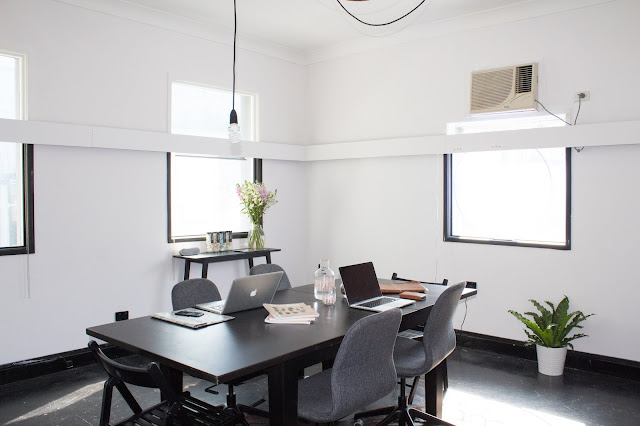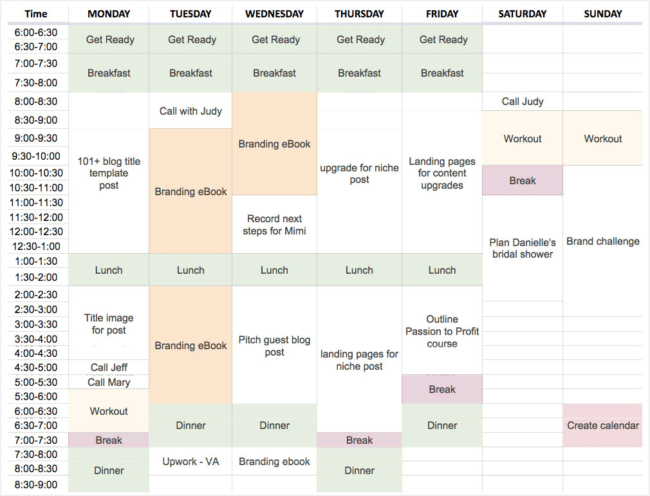1
Winning Interview Techniques / 9 INTERVIEW TIPS YOU CAN'T AFFORD TO MISS
« on: March 22, 2020, 04:57:40 PM »
Interviews are hard and they can be harder when you lack preparation The best way to ace your interviews is by being confident, being prepared and knowing your material. Also, keep in mind interviews are a two-way street- so no need to feel like you're walking into an investigation.
Here Are The Top 9 Interview Tips You Can't Afford To Miss
1. Over-Prepare
If you want to walk into an interview feeling confident, relax and ready to ace it- you need to be prepared (actually over-prepared). There are many things you can do to prepare for your interview, here are a couple.
Research the company/organization- Use Google, Glassdor.com to do more of detail research. Look at the reviews current and former employees have left on this site.
Research the company's mission, their history, current company's goals.
Research the names of the founder/s, CEO/President (upper management).
Take a look at who are their direct competitors.
Research the business and the logistics associated with the interview- what does that mean? Look into what is currently happening with the field/company you are interviewing for, this will be a good topic of conversation/question to bring up to your interviewer.
Do a quick research on the interviewer (if it's the hiring manager, VP, SVP and so on)
2. Prepare Your Responses
The best way to be ahead of the interview is to practice what you will be asked. Standard interviews ask the same questions or similar and even when they sound different they eventually mean the same thing.
Remember- interviewers want to know what you can bring to the table to make their life and the company's life easier.
Interview questions are designed to identify a couple of things;
What you know
Who you are
Your skills
Are you a good match for the company/team
What you are good at
What value do you bring to the company- look for the positive things that you have in common with the company & how to can help with their mission.
& much more
For those reasons is good to be ahead and to do that, you will need to do some practicing.
Practice:
The reason/s why you want the job (not why you need it)
Selling points
Identify why you are the right person for the job
Make a list of your skills, knowledge, and personal qualities
Telling about yourself- with a brief overview of your career history (present, past, and future and finish off by reminding them why you are the right person for the job)
Make note of the things that you really admire about the company
PRO TIP: Create note cards with 3-4 points for each interview question you are practicing. DO NOT rehearse your answers word by word (you will forget them & it will throw you off during the interview). Instead- remember key points and make answers around them.
3. Prepare Your Questions
Is great to be ahead by practicing your responses, but it is as important to have questions for the interviewer. An interview that is not a two-way interview will hurt you more than you forgetting how to answer a question or not having all of the "require" qualifications. To be able to have a "conversational" interview it is key for you to have at least 10 questions for the interviewer- granted, you do not have to go through all 10 questions and some of them could get answered during the interview itself (so prepare even more questions if possible).
4. Compare Your Skills To The Job qualifications/requirements
The only way you can be ahead of the interviewer is by thinking like them, to do that you need to anticipate their concerns. By comparing yourself to the requirements and knowing what you have and lack you will be able to remind the interviewer why you are a great fit for the role and what you know you need/lack on but are willing to work twice as hard to obtain.
Letting your interviewer know you are a fast learner, eager to learn, ready to take training/classes and anything required to meet all of the qualifications will assure them that you are exactly the person they have been looking for.
5. Have A Mock Interview
Practice, practice and more practice is the key to being prepared, confident and ready for your interview. The more practice you can get in your system- the more your nervous system will thank you later.
-You can ask a friend or family to practice with you by asking you some of the interview questions- make sure to rearrange the questions each round you practice. Practice the interview the most "office" setting available to you (dining room, home office, etc) and make sure it's a quiet place.
-If you don't have a friend or family, record yourself practicing both the questions and the answers.
-If you cannot record yourself, practice your responses in front of a mirror.

6. Print Your Resume Copies
It does not matter if you know for a fact that the interviewer has a copy of your resume (because you just emailed it to them) make sure you take a couple of copies with yourself to the interview. This will show the interviewer you are prepared.
7. Prepare Ahead Of Time
Interview Outfit
Your outfit says a lot about yourself without you having to actually say anything. Because of the day and time that we live in and the different fields, companies, and roles that are out there- it is very important that your interview outfit matches yourself but also the role and field you are interviewing for.
Commute Time
We all know one of the main rules when it comes to interviews- BE ON TIME.
The best way to do this is by preparing your commute time ahead of time. If you are doing a drivable commute make sure to plug in the address at or around the exact time you will start your commute days before- this will give you a more accurate idea of how long the drive will be. Add 10-20 mins more to this time depending on the day and the weather to ensure you are early. Remember is better to be early than late. If you drive and you arrive early you can easily wait it out in your car.
If you have to take public transportation to your interview- make sure you plug the address into your GPS as well and calculate how long it will take- looking at this time during the exact times but days ahead will help you figure out your commute time. Also, create additional routes, a lot of things can occur to public transportations so it's better to have a plan B and C ready if anything happens.
Always add 20 mins more to your commute.
Rest
If there is a day you need to make sure you get at least 8 hours of sleep- the night before an interview is that night. The key to feeling good and looking good is being well rested- going to sleep at a decent time and letting your mind relax and rest will help you during your interview.
8. Confidence
Now that you're prepared, there are a couple of things that you need to do once the interview starts to show the interviewer and yourself- you got this.
Set a positive intent - thinking positive will showcase positive vibes in the room and will help you be more relaxed.
Have a good body language- show good energy & have a good poster. If you feel good, you look good- remember to keep relaxed but professional energy and presentation.
Use a good language/positive vocabulary- Use keywords. If you need to say "negative stuff" say it but in a positive way (ex. instead of saying difficult say "challenge").
9. Send A Thank You Note
Thank you notes or emails are becoming more and more essential when it comes to interviews.
Things To Keep In Mind When Writing A Thank You Note/Email:
First thing first- say Thank you (duh)
Be sincere
Include a topic or two that were discussed during the interview
Remind them why you are a perfect fit for the role
Do not make it generic
Make it meaningful and impactful
Make it specific, targeted and customized only to that employer
Show them how excited you are to join the team/company

Interviews are not and will never be a "one size fits all". Every job is different, every interviewer is different and everyone is different. So, to be able to feel good during an interview and sell yourself as best as possible is important you over prepared yourself, practice, practice, and more practice and feel confident.
Source: https://www.pinterest.com/pin/316800155040565270/?utm_campaign=popular_pins&e_t=62a65f0f40e44fa2b20cb83059fa0aad&utm_content=316800155040565270&utm_source=31&utm_term=1&utm_medium=2012




